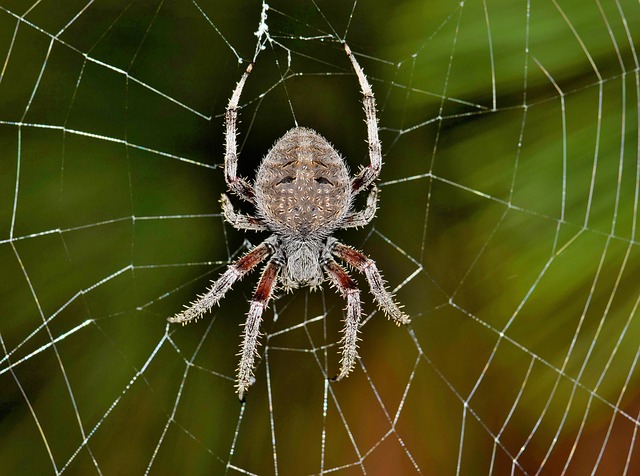Arachnophobia: The Fear Of Spiders And How To Come Out Of It
Some people have one or more phobias, with women slightly more prone to develop one than men. One of the most common phobias across the globe is arachnophobia, an attenuate fear of spiders as per psychology. In this article, Delhi based Psychologist and Marriage Counselor Shivani Misri Sadhoo talks about the fear of Arachnophobia and how to come out of it?

Definition Of Arachnophobia
Arachnophobia derives from the Greek word for spider, that is Arachne and Phobos the Greek word used for fear. This extreme fear of spiders and other 8-legged arachnids such as the (scorpions) could actually be an evolutionary response: spiders, especially the poisonous ones have long been associated with illness and infections.
You might know several species of spiders are poisonous and bite, and you know this from pure experience, science, biology, television, movies and seeing other people get bitten. Thus, when one sees a spider nearby a natural response is to feel feared and avoid the spider.
In several people, the fear of spiders evoke a disgust response, People with high-grade arachnophobia have such a high aversion to spiders that they might be afraid to go into their basement or garage since a spider may be present. If they face a spider, they might actually leave the house rather than to deal with it.
When it creates such anxiety that it prevents one from taking part in activities that one wants or need to do, or manifests itself in a manner that it can be physically and mentally disturbing you know your fear of spiders has become irrational.
Causes
Just like other phobias, arachnophobia can develop in a person because he sees the reaction to spiders of others with the phobia. For them, it is a learned response it makes an impact when they see a family member scream in terror and run out of the room at the very sight of a cobweb. It is theorized that a fear of spiders is impacted by one’s cultural background. In specific parts of Africa, large spiders are feared, but in South Africa, spiders are eaten, people could be unafraid of them. If you have had a frightening experience involving a spider, such as a spider bite, chances are that one will be more likely to develop arachnophobia.
Symptoms
Symptoms related to arachnophobia may occur initially in childhood or adolescence. It can also happen to an adult. These are the following symptoms:
· Dizziness
· Trembling and sweatiness
· Feelings of losing control
· Rapid heartbeats
· Hot and cold flashes
· Chest pain
· Feeling of choking
· Nausea and other gastrointestinal distress
Treatments
Mostly, a combination of counseling and medication can be used to treat arachnophobia. Relaxation methods such as meditation also can be quite helpful in the treatment of arachnophobia.
As in other phobias, arachnophobia can also be treated with exposure therapy and cognitive-behavioral therapy (CBT). In cognitive-behavioral therapy, the therapist attempts to replace the negative automatic thoughts linked with spiders with more rational thoughts. A therapist might use systemic desensitization to treat arachnophobia. This is the method of learning relaxation techniques and then countering your fears from what one fears the least to what one fears the most.
With the assistance of cognitive reframing, an individual can learn to modify the way he looks at spiders so that he no longer perceives them as a threat. Eventually, an individual can change his physical reaction to seeing a spider.
Sometimes, medications such as an antidepressant or an anti-anxiety may be prescribed along with psychotherapy.
How To Come Out Of Fear
Read about spiders. You will learn that they scarcely bite people unless they feel threatened. Sometimes, a spider bite can create an allergic reaction. However, bites from certain spiders like the poisonous black widow and the brown recluse spider can be dangerous, still, most spider bites are harmless.
Bearing in mind the spiders normally and that includes the much-dreaded black widow and brown recluse-bite only in self-defense when they get trapped between your skin and another object. Also, you must be aware that while there are more than 63,000 species of spiders in the world, only 2% of them are dangerous.
Steer away from spiders, store firewood outside to avert bringing spiders inside the house. Install tight-fitting screens on your doors and windows, and cover off any cracks where spiders might enter. Ensure there are no rocks or lumber right outside your house since spiders like hanging out in those areas. Make certain your attic and garage are free of cobwebs.
Discuss your fear of spiders with your loved ones and tell them you are getting treated for your condition. You can ask your physician to recommend a professional therapist who can help you overcome your arachnophobia.
- Does Living with In-Laws Affect Your Marriage? 5 Ways to Deal - July 23, 2024
- Is Your Job Destroying Your Marriage? 7 Signs to Look for - July 15, 2024
- Do you Know How to Handle a Manipulator Effectively? - July 11, 2024